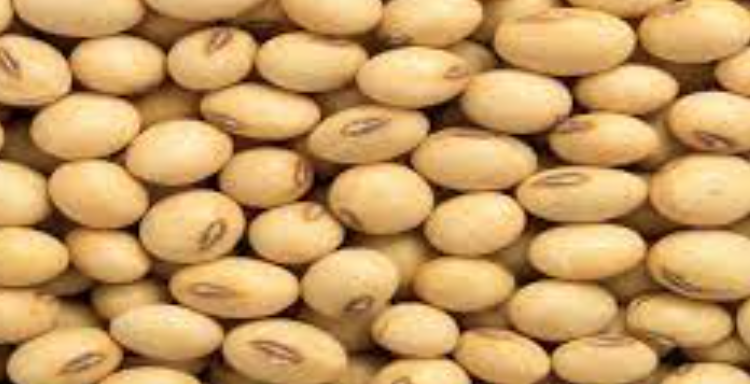In the fertile heart of Southern Africa, a transformative force is reshaping Malawi’s economic horizon and amplifying its role within the Southern African Development Community (SADC). The Bakhresa Group’s $100 million soya processing plant in Limbe, Blantyre, commissioned on July 10, 2025, is more than an industrial milestone—it’s a bold stride toward self-reliance, prosperity, and regional influence. This state-of-the-art facility, capable of crushing 500 metric tonnes of soya beans daily, embodies Malawi’s aspirations under the Malawi 2063 blueprint and sets a precedent for agro-industrial innovation across SADC.
Breaking the Import Trap
Malawi has long faced the economic paradox of exporting raw materials cheaply while importing costly finished goods. In 2023, cooking oil imports alone drained $51 million from the nation’s foreign exchange reserves. The Bakhresa Group, a Tanzanian titan with nearly 50 years of diversified operations across nine African nations, is dismantling this cycle. Requiring 150,000 tonnes of soya annually, the plant directly tackles Malawi’s trade deficit by producing “Soyalite” cooking oil locally, slashing reliance on imported edible oils. High-value by-products like soya de-oiled cake, lecithin, and crude soya oil are poised for export, bolstering foreign exchange earnings and supporting the livestock sector.
The plant’s market entry has already catalyzed a 20% drop in cooking oil prices, easing household budgets and enhancing food security. This tangible benefit underscores the project’s immediate impact, delivering measurable relief to Malawian consumers while signaling a shift toward competitive domestic markets.
A Catalyst for Jobs and Farmer Empowerment
The Bakhresa plant is a powerhouse of opportunity, creating over 500 direct jobs and thousands more indirectly through its value chain, from farming to logistics. President Lazarus Chakwera, who inaugurated the facility, hailed its alignment with Malawi 2063’s focus on industrialization and wealth creation, noting it “empowers farmers, creates jobs.” By guaranteeing a market for 150,000 tonnes of soya annually, the plant transforms smallholder farmers into key players in a burgeoning cash crop economy. This dependable demand incentivizes crop diversification, elevating soya from a secondary crop to a cornerstone of agricultural income.
The Soya Supply Challenge
Despite its promise, the plant faces a critical hurdle: Malawi’s soya production, currently at 200,000 tonnes annually, falls far short of the nation’s 800,000-tonne processing capacity, with Bakhresa alone needing 150,000 tonnes. This gap threatens to force the plant to operate below capacity or import raw materials, undermining its forex-saving potential. Venkatesh Rao Pattipati, Bakhresa Malawi’s General Manager, has called on farmers to rise to the challenge, while the government’s “mega farms initiative” aims to boost production. Achieving the national goal of 1 million tonnes by 2030 is critical to sustaining this industrial leap.
Bakhresa’s Regional Vision
Bakhresa’s investment is rooted in a proven strategy of vertical integration, controlling the value chain from raw material sourcing to distribution. With operations in Tanzania, Uganda, Kenya, and beyond, the group’s $800 million empire employs over 8,000 and drives intra-African trade. The Malawi plant mirrors successful ventures like Tanzania’s $300 million Bagamoyo Sugar plant and an $8.4 million juice processing expansion, showcasing Bakhresa’s commitment to continental empowerment. By fostering cross-border trade in soya products, the plant could position Malawi as a SADC agro-industrial hub, catalyzing regional economic integration.
Navigating Challenges, Seizing Opportunities
The project’s journey wasn’t without obstacles. Delays from foreign exchange shortages, weather disruptions, and bureaucratic red tape pushed the commissioning from 2023 to 2025, inflating costs. Policies like the 30% mandatory conversion of export proceeds to the Reserve Bank of Malawi continue to challenge exporters. Yet, government reforms have paved the way for progress, highlighting the need for a stable, supportive policy environment to maximize such investments.
Malawi now stands at a pivotal juncture. With Bakhresa’s commitment to further diversification and alignment with the National Export Strategy, the nation could shift from a net importer to a competitive exporter of cooking oil and by-products. Success hinges on closing the soya supply gap through collaborative efforts between farmers, government, and private players.
A Beacon for SADC
The Bakhresa soya plant is a clarion call for African industrialisation. It exemplifies how strategic private investment, aligned with national goals, can drive economic transformation. If Malawi can scale up soya production, this $100 million venture will not only secure domestic food security but also elevate the nation as a dynamic player in SADC’s economic landscape, setting a powerful precedent for the region’s industrial BASE
